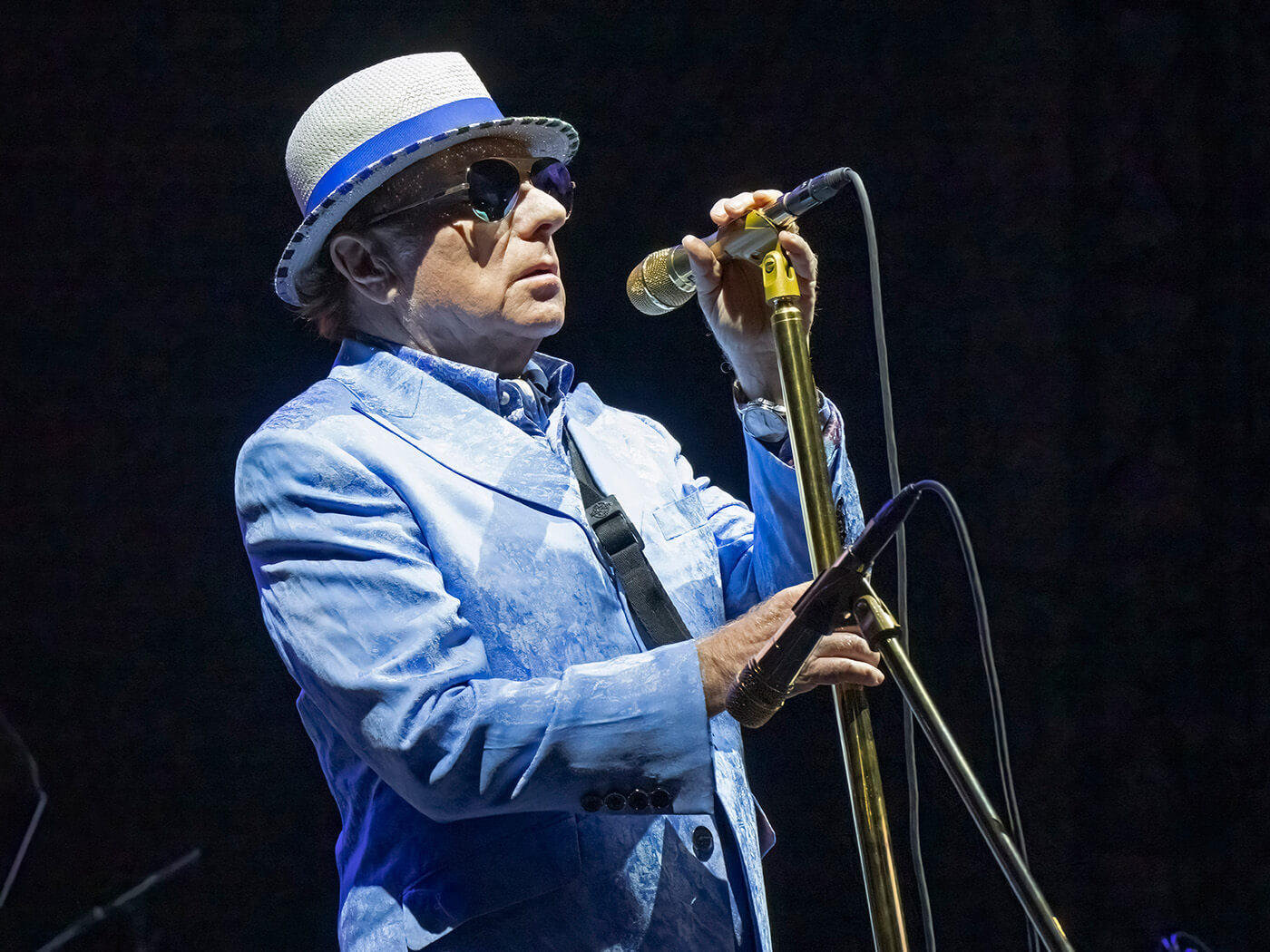The great reset has arrived. After two exhausting albums of political ranting, Van Morrison appears to have got everything off his chest and gone back to basics. Moving On Skiffle sees him working through 23 covers of early country, gospel, folk and blues numbers that he first encountered at Belfast’s Atlantic Records during the skiffle craze of 1956–57. Whether his own versions can be considered skiffle is a moot point, despite the constant buzzing presence of Alan Wicket on washboard.
Van Morrison first talked about recording a skiffle album in the late 1970s, and in 1998 he recorded The Skiffle Sessions in Belfast, a live album (released in 2000) that featured skiffle maestros Lonnie Donegan and Chris Barber, plus Wicket on washboard in a band that also included Dr John and Big Jim Sullivan. On that occasion, the approach to skiffle was more conventional, a rough-edged rinky-dink feel to complement the souped-up jazz and blues. Moving On Skiffle is richer and more sophisticated but has a lightness of touch that recalls Bruce Springsteen’s delightful 2006 album of Pete Seeger reinterpretations, We Shall Overcome. Although it is more New Orleans than 2i’s, Morrison’s love of these songs rings true, and there’s a generosity of spirit, with almost every band member given space to showcase their own chops, from Richard Dunn’s perky Hammond on opener “Freight Train” to Seth Lakeman’s mournful fiddle on closing track “Green Rocky Road”. Morrison himself plays guitar, harmonica and saxophone.
That sense of joy is welcome after Morrison’s two Covid albums, Latest Record Project Volume One and What’s It Going To Take?. These were curious affairs, with lyrics infused with rage at pandemic restrictions but music that could be astonishingly beautiful. Both these were recorded at Peter Gabriel’s Bath studio with a versatile band, all of whom appear on Moving On Skiffle and are attuned to Morrison’s current semi-improvised recording style. Credit also to the backing vocals and harmonies, which provide one of the strongest links back to skiffle.
Most of these songs were recorded by skiffle groups of the 1950s, which is how Morrison first discovered them. “Freight Train” is one of several tracks performed by skiffle pioneer Chas McDevitt (who was present at sessions for Moving On Skiffle but isn’t credited). The Vipers are represented on several tracks: “Sail Away Ladies”, a hit in 1957 under the title “Don’t You Rock Me Daddy-O” (produced by George Martin), as well as fine versions of “Streamline Train” and “No Other Baby”, to which Morrison contributes his own honking harmonica solo. There are tracks popularised by Ken Colyer (Lead Belly’s worksong “Take This Hammer”), Chris Barber (“Gypsy Davy”) and Lonnie Donegan (“Travelin’ Blues”).
On Morrison’s new versions, the skiffle genre’s more abrasive qualities – nasal vocal delivery and DIY sound – are replaced by beautiful singing, exceptional musicianship and clever arrangements. The weary “Travelin’ Blues” is reinvented as an ensemble piece, while “Come On In” has a fabulous swing. The size of the band gives the songs more heft. Take “Worried Man Blues”, a Carter Family song covered by Lonnie Donegan, that turns into a buzzing honky-tonk number under Morrison’s guidance, or the boogie-woogie of “Greenback Dollar”, another song recorded by McDevitt.
Some of the best reinterpretations are of country numbers. Don Gibson’s “Oh Lonesome Me” is presented in a radically different form to Neil Young’s heartbroken take on After The Gold Rush. That’s followed by a couple of Hank Williams numbers – a cracking “I’m So Lonesome I Could Cry” and “Cold Cold Heart”, between which sits a funky take on Hank Snow’s “I’m Movin’ On” that at times sounds like it’s been crossed with “Green Onions”.
Midway through the album comes “Gov Don’t Allow”, a rewrite of “Mama Don’t Allow”, a song dating back to the 1920s that adolescent skiffler Jimmy Page performed as “Mama Don’t Allow No Skiffle Playing Round Here” on the BBC in 1957. Morrison’s playful version lists various things he believes that the government has banned, from freedom of speech to washboard playing. In isolation, it’s rather funny. It’s also a reminder that Morrison is never going to change.

